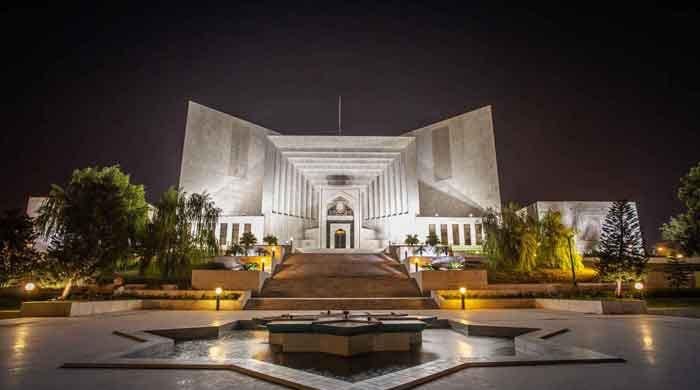- Govt filed appeal under Section 5 of SC law.
- Five-member larger bench to hear matter next week.
- Supreme Court issues notices to lawyers.
ISLAMABAD: Chief Justice of Pakistan (CJP) Qazi Faez Isa-led larger bench will take up the federal government’s intra-court appeal challenging the top court’s verdict to annul accountability law amendments on October 31 (Tuesday).
A three-member larger bench of the apex court — headed by then Chief Justice Umer Ata Bandial and comprising Justice Ijaz Ul Ahsan and Justice Syed Mansoor Ali Shah — on Sept 15 by a majority of 2-1 had restored corruption cases against the public office-holders after striking down some of the amendments made by the PDM government to the National Accountability Ordinance (NAO) 1999, declaring it against the rights pertaining to the public interest enshrined in the Constitution.
Subsequently, the federal government filed an appeal under Section 5 of the Supreme Court (Practice and Procedure) Act 2023 against the apex court’s order.
The five-member larger bench headed by CJP Qazi Faez Isa and comprising Justice Amin-Ud-Din Khan, Justice Jamal Khan Mandokhail, Justice Athar Minullah and Justice Hasan Azhar Rizvi will hear the government’s appeal.
The top court has also issued notices to lawyers.
The government had contended that by setting aside the law passed by parliament and making amendments to the NAB law, the apex court had crossed its powers.
It was further contended that parliament was competent to legislate adding that it had enacted a law making amendments to the NAB law.
“If a legislation is repugnant to the fundamental rights of citizens, then the court can set it aside,” it contended but added that the amendments made to the NAB law did not affect the fundamental rights of citizens.
After the verdict, the NAB reopened cases against political bigwigs including the former prime ministers.
Last year in June, Pakistan Tehreek-e-Insaf Chairman Imran Khan had filed a petition in the apex court under Article 184(3) of the Constitution praying for annulling the amendments for being “ultra vires to the Constitution”.
The amendments made to the NAB law were struck down by the court including the one which limited the NAB jurisdiction to cases involving over Rs500 million and one which allowed the accused to claim the amount of plea bargain deposited after being acquitted.
The judgment authored by former CJP Bandial declared the petition of Imran Khan as maintainable on account of violating Articles 9, 14, 24 (protection of property rights) and 25 (equality of citizens) of the Constitution and for affecting the public at large because the unlawful diversion of state resources from public development projects to private use leads to poverty, declining quality of life and injustice.

